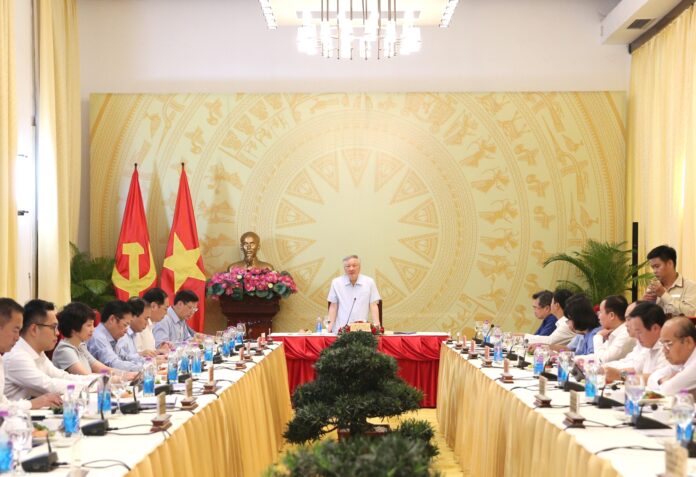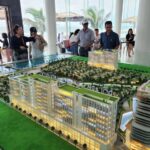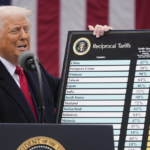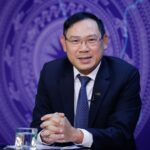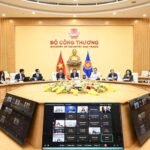In the afternoon of May 8, Permanent Deputy Prime Minister of Vietnam, Nguyen Hoa Binh, along with representatives from various central ministries and sectors, had a working session with Ho Chi Minh City’s leaders regarding the development of an international financial center in Vietnam and the resolution of obstacles related to six key projects.
Deputy Prime Minister Nguyen Hoa Binh emphasized the crucial role of establishing and operating an international financial center, especially as the country is about to enter a new era of accelerated and breakthrough development. While Ho Chi Minh City has already formed a financial center, it has been spontaneous and lacked incentives. There is a need to establish a well-prepared and internationally standardized international financial center.
“The development and operation of an international financial center is significant not just for Ho Chi Minh City but for the entire country, as it serves as a financial hub connecting Vietnam to the global economy,” said Deputy Prime Minister Nguyen Hoa Binh. “With preferential policies, especially tax incentives and simplified administrative procedures, the international financial centers being promoted in Vietnam are expected to be highly attractive to investors.”
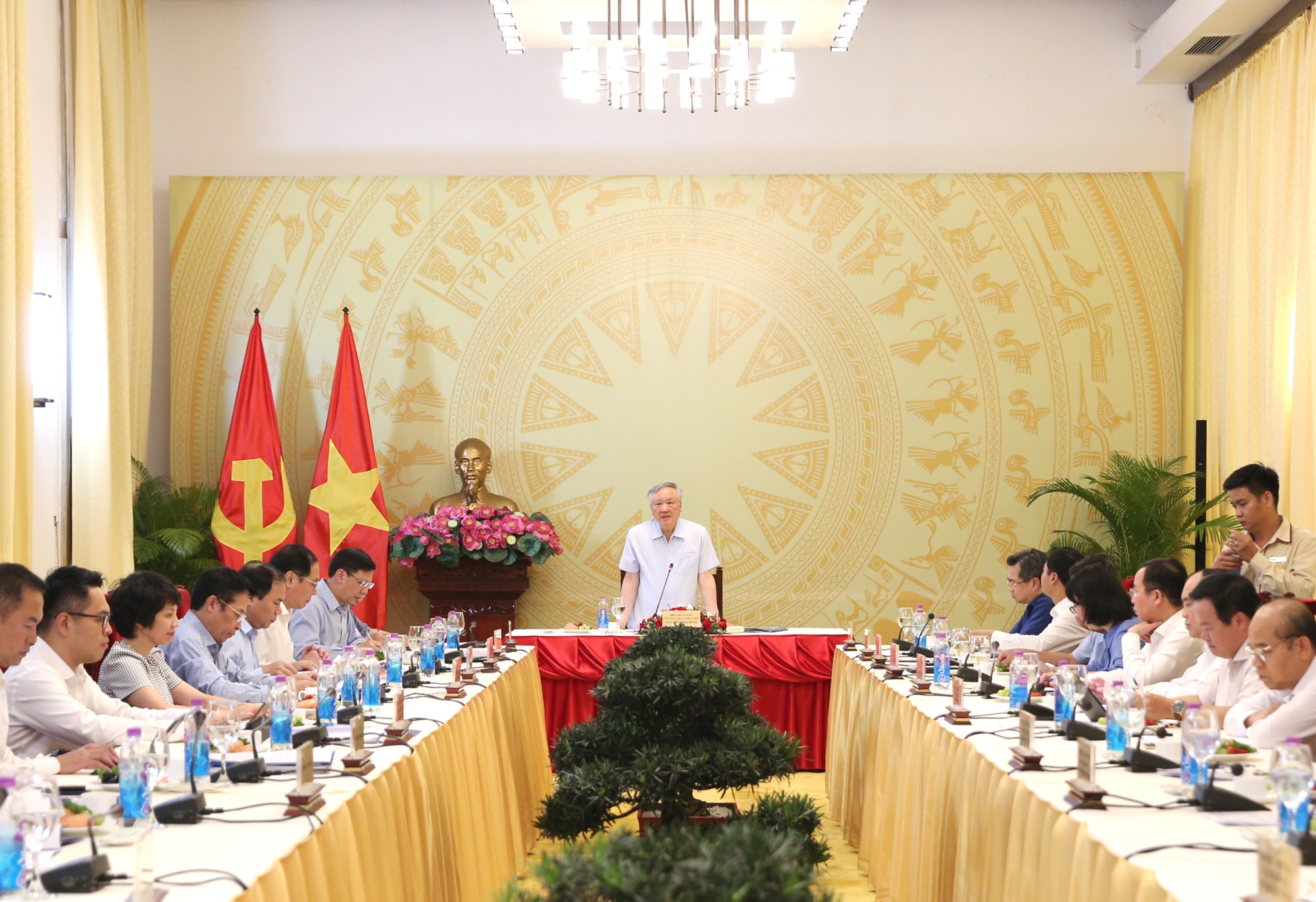
Deputy Prime Minister Nguyen Hoa Binh highlighted the importance of paying attention to human resource preparation for the financial center – Photo: VGP/Nguyen Hoang
Implementing the directions of the Central Government, the Deputy Prime Minister appreciated Ho Chi Minh City’s proactive approach in establishing the international financial center, from proposing mechanisms and policies to executing tasks and plans for infrastructure development and human resource training.
The Deputy Prime Minister requested Ho Chi Minh City to focus on directing the early formation of the physical infrastructure for the international financial center and to be well-prepared in attracting investments. Special attention should be given to human resource preparation. While the city has already planned for human resources, it is now time to discuss the specific framework, individuals, and positions within the organizational structure of the international financial center to ensure a skilled workforce that meets international standards when the center becomes operational.
“The quality of human resources is the decisive factor in the quality of the financial center. For a financial center operating under international rules and standards, human resources must also meet international standards,” said Mr. Nguyen Hoa Binh.
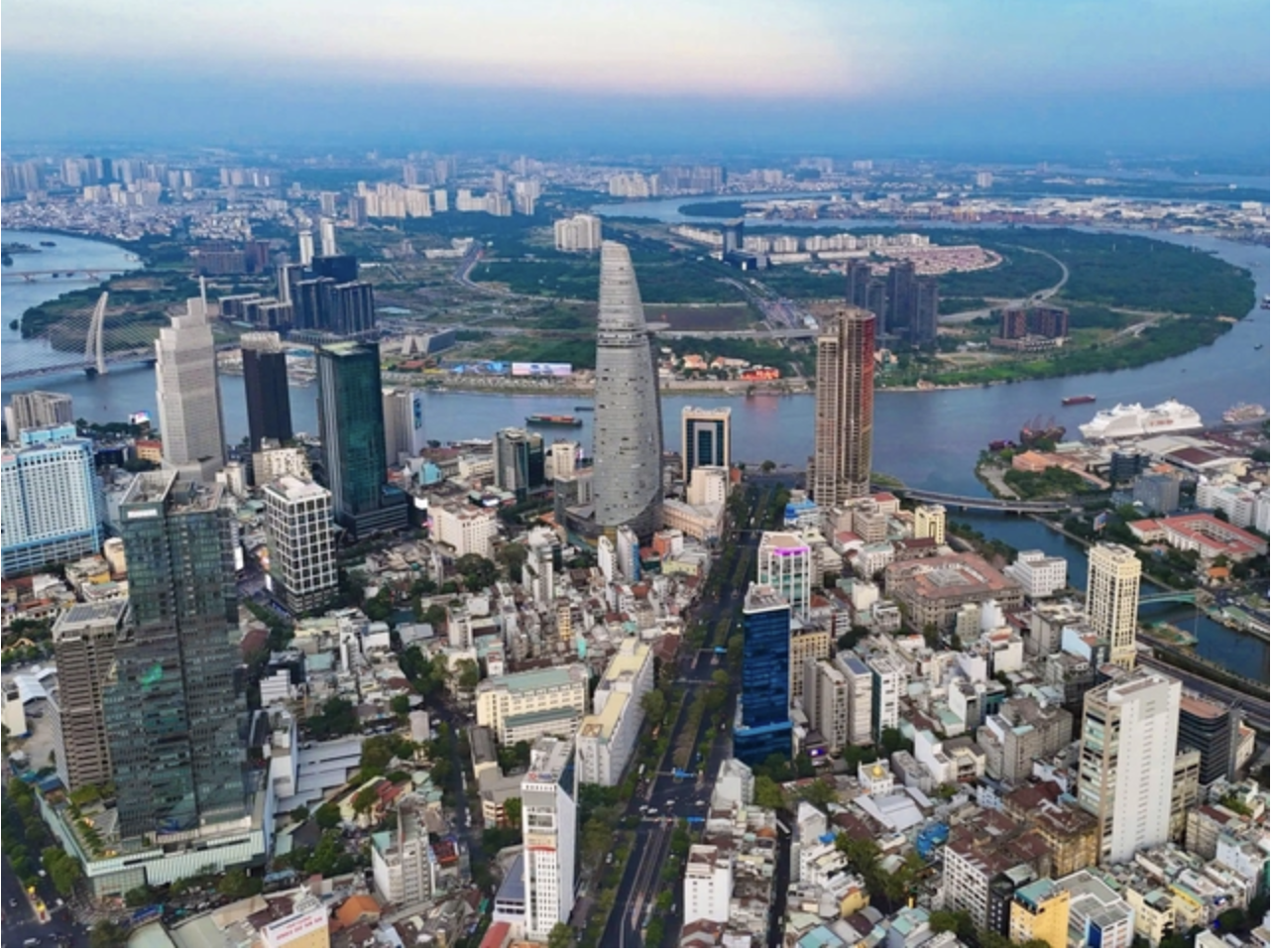
Ho Chi Minh City is considering developing the international financial center based on the existing financial district in District 1 and forming a new financial district in Thu Thiem – Photo: Hoang Trieu
Reporting on the construction of the international financial center, Vice Chairman of the Ho Chi Minh City People’s Committee, Nguyen Van Dung, stated that the city will continue to coordinate with relevant ministries and sectors to establish internal agencies, set up and operate the financial center’s management apparatus, and focus on infrastructure investment and human resource development.
Currently, Ho Chi Minh City is considering developing the international financial center based on the existing financial district in District 1 and forming a new financial district in Thu Thiem. These two districts will complement each other, with traditional financial services concentrated in the existing district and innovative financial services in the new district.
The ESG Vietnam Investment Conference 2025: Navigating Sustainable Development in a Dynamic Global Landscape.
The Vietnam ESG Investment Conference 2025, co-organized by Raise Partners and Vietnam Innovators Digest, is set to take place at the New World Saigon Hotel in Ho Chi Minh City on May 13-14, 2025. With the theme “Sustainability and Growth in a Dynamic Age,” the conference, now in its third iteration, is expected to serve as a pivotal platform for discussions and collaborations on environmental, social, and governance (ESG) investment strategies in Vietnam.
The Great Tariff Tightrope: Strategies for Businesses to Navigate the Complex World of Tariffs.
The recent wave of import tariffs imposed by the US administration on China and a host of other countries is sending shockwaves through the business community. In Vietnam, large companies are realigning their operational and financial strategies to mitigate the risks that are beginning to spread.
“Cut Red Tape and Go Digital: Businesses Yearn for Streamlined, Efficient Administrative Procedures”
“On behalf of the business community, Mr. Tu Tien Phat, CEO of ACB, expressed at the seminar for contributing to Resolution 68, the strongest desire to vigorously promote administrative procedure reform towards simplicity, transparency, and comprehensive digitalization. This would provide a strong impetus for a robust recovery in production and business activities.”

